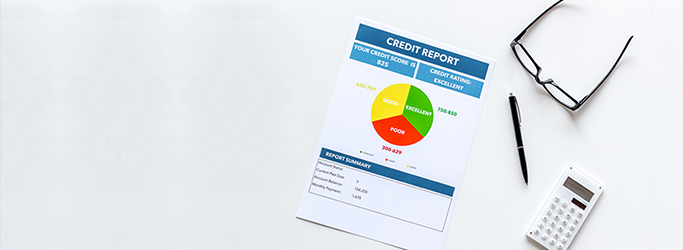Borrowing & Credit | Money Basics
Key tips on understanding loans and managing your debt

Loans can be very helpful when used wisely. They allow you to achieve goals that may seem out of reach with just your savings. But how do you know if a loan is a good idea? Let’s break it down.
A loan becomes a good debt when it helps you grow financially, either by increasing your income, building an asset, or improving your skills. The key is to use loans in a way that brings value, not stress. Let’s look at some types of loans and how they can benefit you.
Types of loans available to Filipinos
-
Business Loan: If you’re starting or growing a business, you might need extra funds for equipment, inventory, or even to hire more staff. A business loan helps you cover these costs, allowing you to expand and earn more in the long run.
-
Personal Loan: This is a flexible loan that can be used for many things, like consolidating debt, covering emergencies, or paying for a big expense. Personal loans don’t require collateral, making them an easy option when you need quick cash.
-
Education Loan: Education is one of the best investments you can make. An education loan allows you to focus on your studies now and worry about paying it back later when you’re working. This helps you secure a better job and income in the future.
-
Home Loan: Owning a home is a dream for many. A home loan lets you buy property now and pay for it over time. Not only does it provide shelter for your family, but it’s also an asset that can increase in value or be rented out.
-
Car Loan: Having your own car offers convenience and mobility. A car loan spreads out the cost, making it easier to afford. Whether it’s for personal use or to support a business, a car can provide great utility.
-
Credit Cards: Credit cards allow you to make purchases without carrying cash, and they come in handy during emergencies. However, it’s important to pay off your balance on time to avoid high interest rates.
Now, loans can turn into bad debt if you borrow more than you can pay back, or if you miss payments. Late payments lead to high-interest fees and penalties, which can pile up and cause financial stress. So, it’s crucial to manage your loans wisely.
Loans are not something to be feared. With the right plan and purpose, they can be a useful tool to improve your life, whether through business, education, or owning assets. The key is to borrow responsibly and pay back on time.
We all have to borrow money sometimes, and that’s okay—as long as we stay on top of it. The trouble begins when we can’t keep up with our payments. So, let’s talk about what makes some debt better than others and how to handle it smartly.
What is the difference between good debt and unmanageable debt?
Debt isn’t all bad. Borrowing money from a trusted source can actually help you in certain situations. The key is managing it well and making sure it doesn’t spiral out of control. Let’s break down what we mean by good debt and unmanaged debt.
What is bad debt?
Unmanageable debt happens when you can’t keep up with your payments. Miss a payment here or there, and things can start to snowball with late fees and interest. Before you know it, your debt feels overwhelming.
Here are some warning signs you might have unmanageable debt:
- You’re overspending beyond what your budget allows.
- Your savings or emergency fund are taking a hit because of your debt.
- You’re struggling to make payments on time and in full.
- You’re borrowing more just to cover existing debts.
- The terms of your debt don’t match the value of what you bought (like a car loan that lasts longer than the car itself).
What is good debt?
Good debt, on the other hand, is borrowing money with a clear purpose that benefits you in the long run. As long as you can manage your payments and stay on track, this type of debt can help you get ahead.
Examples of good debt include:
- Taking out a loan to grow your business or earn more money than you borrowed.
- Using credit cards responsibly by paying them off in full each month.
- Student loans that help you advance your career.
- Mortgages or car loans that improve your quality of life.
- Loans that help build discipline around saving and spending toward your long-term goals.
How to focus on managing debt
Transitioning from unmanageable debt to good debt is possible, but it takes time and a shift in mindset. It starts with making smart choices about how to borrow money. Think about the long-term benefits of taking on debt. For instance, borrowing money for education that will boost your earning potential is a good move.
If you’re already dealing with managing your debt that feels overwhelming, it’s time to come up with a game plan to pay it off. The sooner you get a handle on it, the better.
Most people have some debt, and that’s totally normal. Instead of stressing about it, the goal is to manage it wisely. Learn how to borrow smartly and make sure your debt works for you, not against you. Once you’ve got a handle on that, you’ll be in a better place to take on bigger loans, like for a home or car.
More Smart Reads